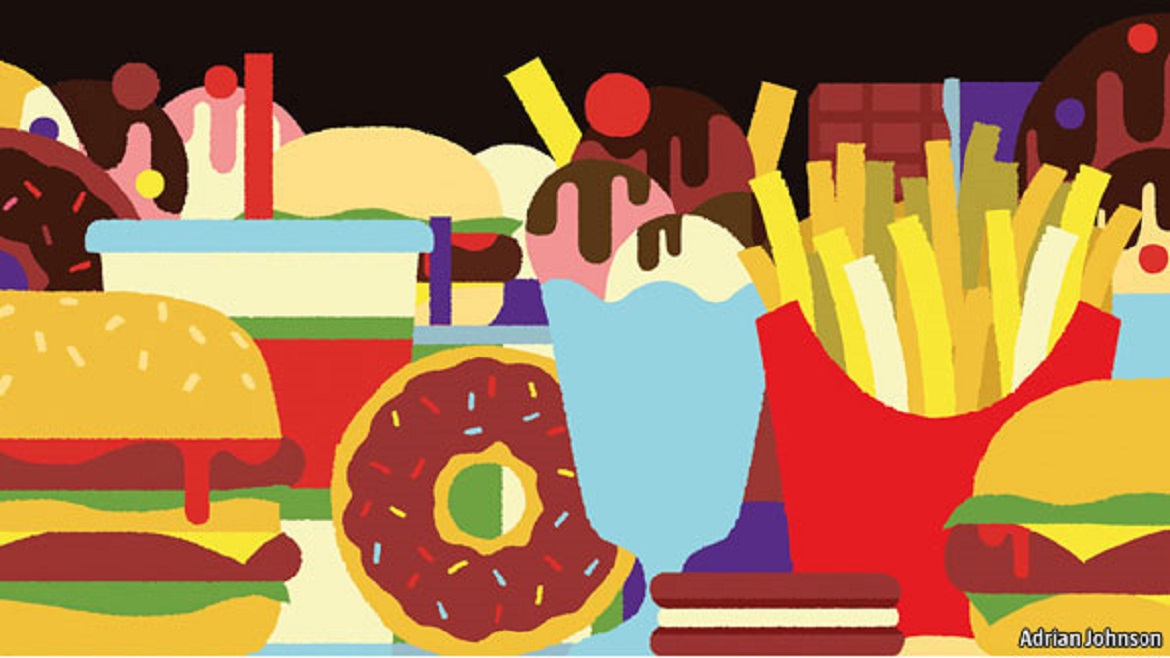Michael Bloomberg, the Mayor of New York, presumably feels the same way, given his attempt to limit the size of sugary drinks on sale in the Big Apple to 16 ounces (473 mils).
Around 60 percent of the city's adults and 40 percent of its children are overweight or obese. As the Mayor explained, “obesity is the only major public health issue we have that is getting worse”. Currently, KFC patrons can quench their thirst with a 64-ounce (1.9 litre) Mega Jug of Pepsi, one of which contains 217 grams of sugar. If you're struggling with these figures, there's a photo gallery of “offensively enormous beverages” here.
It remains to be seen if Mayor Bloomberg's soda ban will make it through the courts. It has provoked fierce criticism from those (including at The Economist) who see it as a top-down, nanny state attack on individual liberties. If you take away my Big Gulp, the theory goes, you take away my freedom.
This isn't the first attempt by politicians to outlaw “bad” food. Two months ago, Denmark abolished, after just a year, the world´s first “fat tax”, a tariff on saturated fats that proved deeply unpopular with consumers, retailers and food producers. Mayor Bloomberg initially tried to introduce a soda tax rather than a ban, but it failed in the state legislature.
When The Economist published its recent special report on obesity, we posed the question “If people get great pleasure from eating more than is good for them, should they not be allowed to indulge themselves?”
My view is that banning big drinks would have minimal impact - people could simply buy two slightly less big drinks. If we´re serious about tackling obesity, we need to make it just as convenient and affordable for people to eat/buy healthy food as it is with fast food. In many communities, it´s anything but.
Improving the nutritional quality (and variety) of the food served in school cafeterias is an obvious move. It´s happening in the US, Brazil, Mexico and elsewhere. The bigger challenge is how to ensure people (particularly in inner-cities) have access to affordable fresh produce on their doorstep.
The issue of how to provide convenient, affordable and nutritious food choices is one we´ll be discussing at length at The Economist´s Feeding the World conference in Amsterdam on January 30th. We'll be hearing about new approaches to improve diets, especially among the poor. I´d be very interested to hear your own thoughts on how society (particularly policy-makers) should tackle obesity. There is a comments box below; your input will be greatly appreciated.
Incidentally, obese infants gorging on cheeseburgers and cola are as rare in my French hometown as chain-smoking monkeys. That´s thanks to good diets in school canteens, people being educated about food from a young age, twice-weekly markets selling fresh fruit and vegetables cheaper than in stores, and a physical environment where walking and cycling is the norm, not the exception.
This table from the Harvard School of Public Health reveals the economic cost of obesity in different countries. Currently, 21% of total US healthcare spending goes on tackling the effects of obesity. The French figure is 1%. The Economist's current front cover dresses Barack Obama in a beret with the mocking title “America turns European”. I can think of worse fates.
Bon appétit!
Dougal
The views and opinions expressed in this article are those of the authors and do not necessarily reflect the views of The Economist Intelligence Unit Limited (EIU) or any other member of The Economist Group. The Economist Group (including the EIU) cannot accept any responsibility or liability for reliance by any person on this article or any of the information, opinions or conclusions set out in the article.




